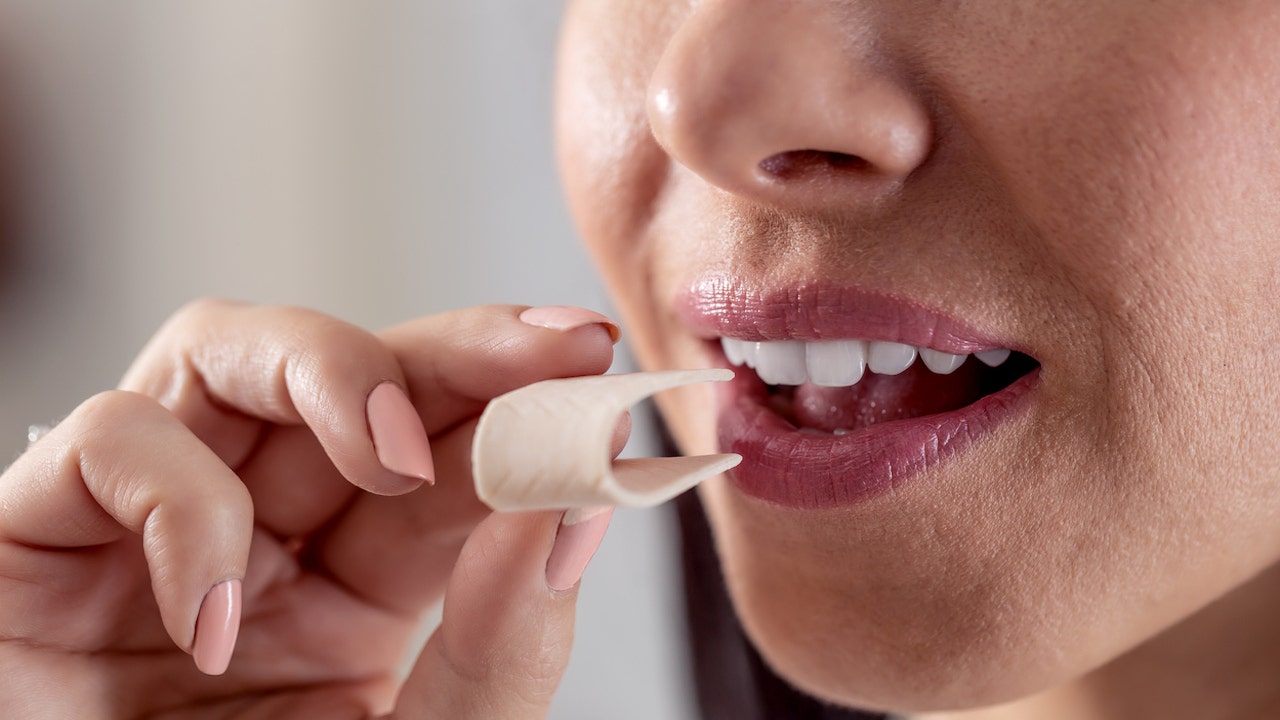Despite the recent warning from the World Health Organization, aspartame has been defended by the FDA and industry experts, stating that it doesn’t pose a cancer risk. However, considering its widespread use in chewing gums and candies, it’s worth questioning whether it has any negative effects on teeth and gums.
According to the American Dental Association (ADA), chewing gum after meals can be beneficial for teeth because it increases saliva production. Saliva helps to dilute and neutralize the acids produced by bacteria in plaque, which can protect against tooth decay.
However, it’s important to note that chewing gum with sugar can actually lead to cavities. The ADA recommends chewing sugar-free gum as part of a regular oral care routine, including brushing twice a day with fluoridated toothpaste and cleaning between teeth daily, to help reduce the risk of cavities.
While aspartame itself doesn’t cause dental decay like regular sugar does, some dentists warn that other ingredients in sugar-free gum could contribute to tooth decay. These ingredients include various acids, such as carbonic acid, phosphoric acid, malic acid, citric acid, tartaric acid, and fumaric acid, which are also found in diet sodas.
Acids lower the pH in the mouth, which can lead to enamel demineralization, weakening and breaking down of the teeth. Tooth enamel plays a crucial role in protecting against decay, and when it erodes, the softer dentin layer beneath becomes more prone to decay.
Dr. Sean Kutlay, a general dentist, confirms that both sugar-free and aspartame-containing gum can stimulate saliva production, reduce mouth acidity, and prevent cavities, especially when chewed for 10 to 15 minutes after meals.
Although aspartame has recently been linked to potential digestive health issues, such as bloating, diarrhea, and fatigue, it doesn’t directly cause tooth decay or cavities. Dentists recommend considering xylitol, a naturally occurring sweetener found in plants, as a more beneficial sugar-free option.
Xylitol is recommended because cavity-causing bacteria cannot metabolize it as fuel, starving the bacteria and helping to prevent tooth decay. It also decreases cavity-causing bacteria, increases saliva production, and promotes tooth remineralization. A study published in Clinical Oral Investigations found that chewing gum containing xylitol was effective in reducing plaque build-up on teeth.
It’s worth noting that xylitol is also found in toothpastes, mints, and oral rinses aimed at reducing cavities and bacteria. Compared to sugar, xylitol contains less than half the calories and is much sweeter than aspartame, requiring minimal amounts in products.
However, consuming large amounts of xylitol can cause gastrointestinal issues like gas and bloating. The recommended daily intake of xylitol for dental cavity prevention is 6 to 10 grams.
In conclusion, while aspartame doesn’t pose a risk to dental health like regular sugar does, it’s important to choose sugar-free gum, preferably with xylitol, to stimulate saliva production, reduce mouth acidity, and prevent cavities.
Denial of responsibility! VigourTimes is an automatic aggregator of Global media. In each content, the hyperlink to the primary source is specified. All trademarks belong to their rightful owners, and all materials to their authors. For any complaint, please reach us at – [email protected]. We will take necessary action within 24 hours.


